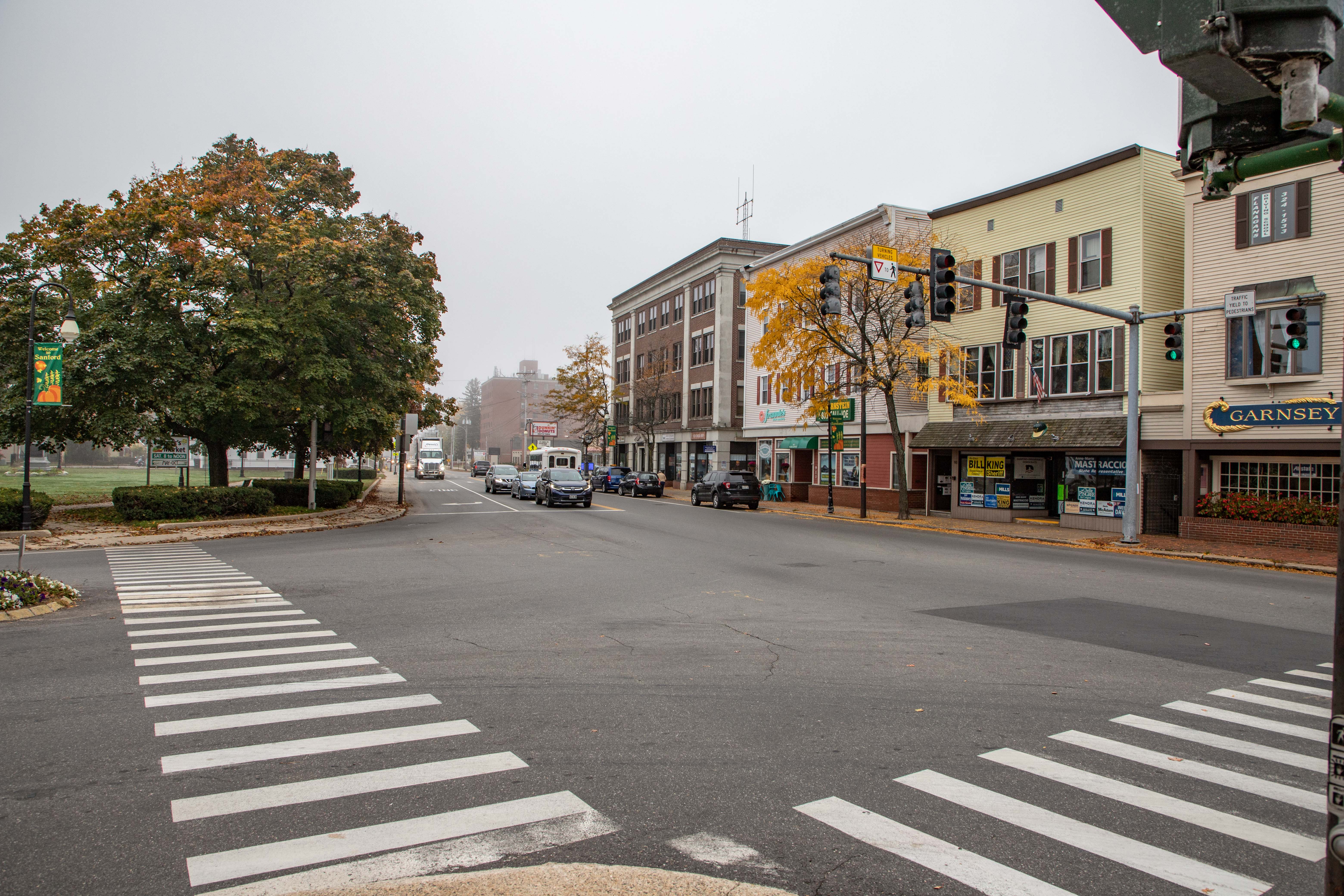
Reducing emissions through lower vehicles miles traveled (VMT)
Reducing the number of vehicle miles traveled is another key strategy to reducing emissions in the transportation sector, identified in the State’s climate action plan. Although MaineDOT can’t ask drivers to use their vehicles less, the Department can provide drivers with the choice of alternative modes of transportation. There are a number of projects underway which have goals of increasing mobility options and increasing bike/ped safety, both of which may influence a driver’s decision to drive their vehicle.
MaineDOT completed its initial Family of Plans in early 2023, including MaineDOT’s Long-Range Transportation Plan (LRTP). One of the LRTP’s five overarching goals is an “Environmentally Sustainable Transportation System,” with MaineDOT investing in practical transportation solutions that mitigate impacts on the natural world and prepare for climate change. Other components of the Family of Plans, such as the Maine State Active Transportation Plan, the Maine State Rail Plan, and the Maine State Transit Plan, provide recommendations for how MaineDOT can improve our multimodal transportation system and increase use of modes other than single-occupancy vehicles. More information is available through the Family of Plans storymap.
 The Bureau of Planning team members are working to help municipalities scope future projects that will revitalize Maine downtowns. We’ve engaged in planning partnerships with Old Orchard Beach, Auburn, Skowhegan, Norway, Rangeley, and others. These efforts may lead to Village Partnership Initiative projects that increase economic opportunity and quality of life in lower-speed village areas through effective design for all users, updated lighting, parking, safer pedestrian walkways, and more.
The Bureau of Planning team members are working to help municipalities scope future projects that will revitalize Maine downtowns. We’ve engaged in planning partnerships with Old Orchard Beach, Auburn, Skowhegan, Norway, Rangeley, and others. These efforts may lead to Village Partnership Initiative projects that increase economic opportunity and quality of life in lower-speed village areas through effective design for all users, updated lighting, parking, safer pedestrian walkways, and more.
Some funding within the Village programs will be used to install roadway features that signal to drivers when they are entering downtown areas that they need to drive carefully. The goal of these gateway features is to improve safety for pedestrians and access to businesses. MaineDOT has identified the roadway features that are most effective in the state, which are outlined in this list of gateway treatment options.
It is the policy of MaineDOT to carefully consider the needs of all users in the earliest stages of infrastructure project design. MaineDOT has delivered projects to improve pedestrian and vulnerable user safety which include new sidewalks, as well as the addition of shoulders, bike lanes, transit stops, freight unloading zones and accommodations for people with disabilities. Under Complete Streets, recent projects in urban or village areas, such as in Belgrade, Ogunquit, Thomaston, Yarmouth, Bar Harbor and Hallowell, have focused on safety for all users of the roadway, and resulted in streetscapes that are much safer and friendlier to pedestrians and other non-motorized users of the road network. In accordance with the Maine State Active Transportation Plan, MaineDOT is currently reviewing the state’s Complete Streets Policy to provide safe and accessible streets and highways, with plans to update the policy by early 2024.
MaineDOT, in partnership with the Maine Turnpike Authority, runs the state’s ride-sharing program, GOMAINE, which was relaunched in early 2022. GO MAINE provides ride matching for carpoolers, rewards people for taking green commutes and offers the Emergency Ride Home Benefit for members. GO MAINE serves the entire state of Maine, and services are free. For more information on the program, visit the GO MAINE website

The Workforce Transportation Pilot program is an initiative of Governor Mills’ Maine Jobs & Recovery Plan to pursue and develop transportation solutions that connect workers with employers across Maine. This $5 million program will provide competitive grants of up to $750,000 to local and regional partnerships to pilot innovative ways to connect workers and employers through ridesharing, vanpools, and other subsidized transit options. The first award, a $387,200 grant to Sunday River of Newry, will support the purchase of four all-wheel-drive vans to offer free transportation for workers from nearby towns to the ski resort, to support existing employees and to reduce barriers to work for new employees.
MaineDOT’s Carbon Reduction Strategy (CRS) builds on Maine Won’t Wait, MaineDOT’s Family of Plans, and other efforts, and serves as a guide for MaineDOT to reduce emissions from Maine’s transportation system. In conjunction with MaineDOT’s other climate efforts, the CRS focuses on three strategies: enhancing active transportation options, reducing vehicle miles travelled through improved transit options, and supporting existing electrification priorities and programs. MaineDOT’s CRS was approved by the Federal Highway Administration in February 2024.
